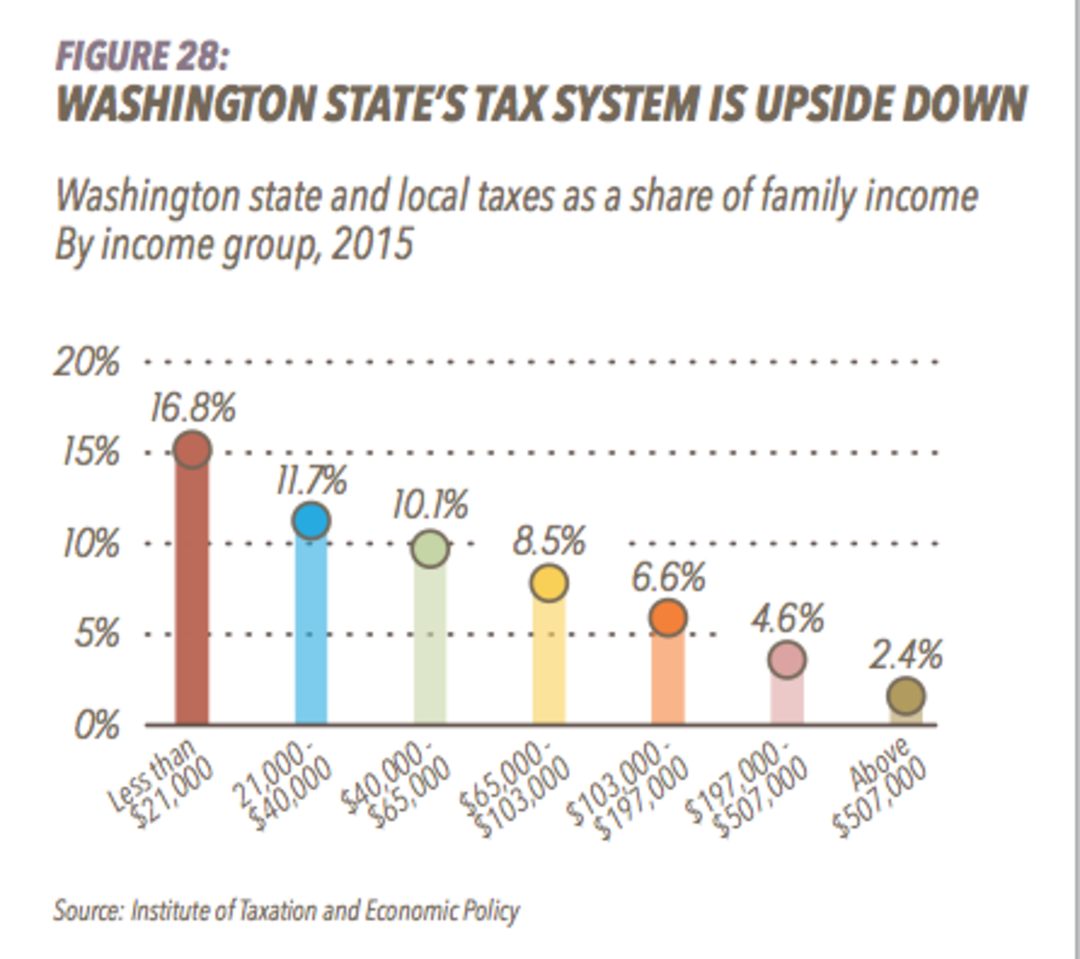Budget Clash in Olympia

Caffeinated News
1. The Republican-controlled state senate released its budget proposal yesterday and the Democrats—governor Jay Inslee, the minority leaders in the senate, and the majority from the house (who released their own proposal last week)—had the usual complaints.
We've been here before: The Republicans—who proposed putting $1.3 billion extra into K–12 education to meet the Washington State Supreme Court's McCleary mandate and lowering college tuition by 25 percent—hyped the fact that their plan doesn't come with new taxes; the uptick in the economy is adding $3 billion in new revenue they reason. (That doesn't cover standing expenses, though—we're still a few billion in the red.) The Democrats criticized the GOP plan for robbing Peter to pay Paul and making onetime, unsustainable transfers. For example, the senate Democrats flagged the Republican budget for: Lowering tuition by taking money out of the state need grant, raiding $200 million from the public works assistance account, taking $47 million from hospitals, taking marijuana revenue from drug treatment programs (I wrote an "Isn't It Weird That..." column yesterday afternoon about the GOP's dreamy reliance on pot taxes), and taking $27 million from the health benefit exchange.
Ever-quotable house budget leader state representative Ross Hunter (D-48, Medina), who ridiculed the GOP for "assum[ing] millions in magic agency ‘efficiencies,’ which are essentially budget gimmicks designed to make cuts without being specific about which cuts they’re making," pointed to the bottom-line difference in the two proposals: The Democrats—who outpace the GOP McCleary commitment by adding $3.2 billion to K–12 funding—go after new revenue with a 0.5 percent capital gains tax.
Representative Hunter said: “But most importantly, [the Republican senate budget proposal] completely kicks the can down the road on solving the problem of our broken revenue structure. We have the most regressive tax structure in the nation. Costs for state and local services are balanced on the backs of low-income and middle-class families while the wealthy pay only a tiny fraction of their income in taxes.

“The House budget proposal is a responsible approach to fully funding basic education by building a more progressive revenue structure."
Admittedly, a pretty hackneyed and long-running debate at this point in world history—the GOP countered, surprise, that they were proposing a "live within our means...no new taxes budget"—state senate minority leader Sharon Nelson (D-34, West Seattle, Vashon) actually added a new line to the Democratic critique by using the household budget analogy that's usually a Republican talking point.
“When families or businesses have expenses, they can’t simply can’t charge their way out of trouble and create more debt. This is no way to run a household, a business or a state,” Nelson said, ridiculing the Republicans' strategy of borrowing money from other funds.
2. In case you missed yesterday's Afternoon Jolt: Former Seattle Office of Film and Music director James Keblas made it official, registering a campaign committee for position nine, one of the two at-large city council seats, telling me "yes," he is running.
There are two other serious candiddates running for the open seat already. One of them is mayor Ed Murray's legal counsel Lorena González—which creates an instant political storyline. Keblas was one of the department heads that Murray did not keep on board when he took office in January 2014; Keblas supported Murray's then-rival, former mayor Mike McGinn. And now, Keblas is running against Murray ally González, one of the few nonincumbents in this year's district elections candidate parade that Murray is likely to openly support.
There's a more nuanced political storyline, though—which I find more interesting. With González, a civil rights attorney who was raised by migrant workers in Yakima, an apparent match for Seattle's current focus on social justice and equity (González got the very early endorsement of premier civil rights and social justice group OneAmerica, where she was board president in 2014) matched against a prominent figure in Seattle's equally mobilized arts community, which is also feeling marginalized by an increasingly gentrified city, this race may be one of the more soul-searching contests in the city. The fact that it's a citywide debate only adds to the high stakes and big questions.
There is another candidate in the race—slow-growth, neighborhood activist Bill Bradburd. District elections supposedly favor Bradburd's brand of politics. So, even though he's running at large, testing the Throwback Thursday political agenda citywide in a year when districts give parochialism more traction makes Bradburd's bid in the already interesting contest another fascinating angle.
3. U.S. Secretary of Labor Thomas Perez is in Seattle today and he will join mayor Ed Murray and socialist city council member Kshama Sawant at a joint appearance this morning at Island Soul restaurant in Columbia City to mark Seattle's new, phased-in $15 minimum wage, which begins today.
Working Washington has set up a website—What's My Wage?—so workers can make sure employers are following the law by meeting the graduated increases. Large employers, who must pay $15 an hour by 2017, are required to start paying $11 an hour today.




